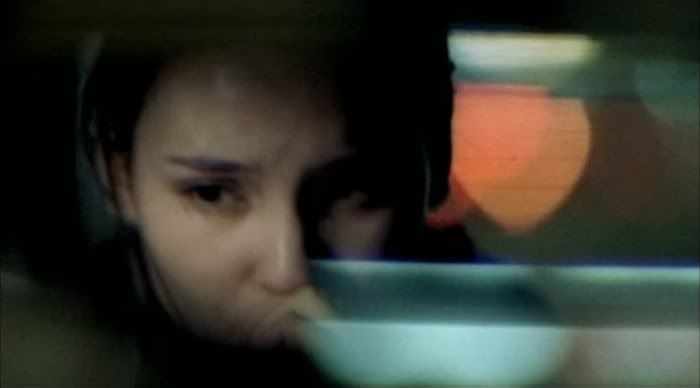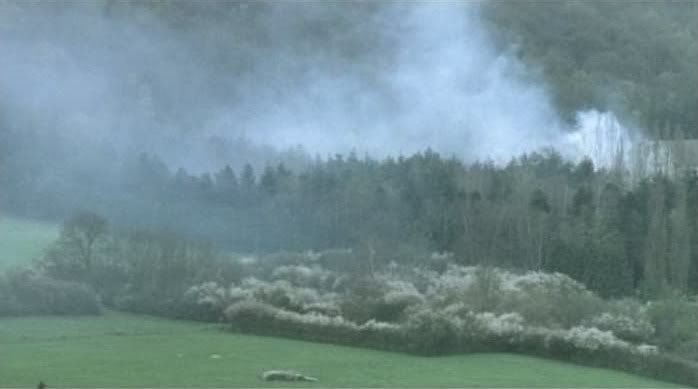
In Late August, Early September, Olivier Assayas delicately probes the loosely intersecting lives of the friends and family surrounding ailing writer Adrien Willer (François Cluzet). The film's episodic structure, divided into segments like chapters in a novel, emphasizes the effect of time and the way people tend to drift in and out of each other's lives. Weeks or months pass between episodes, and when the film returns to a character, things have changed or just shifted slightly, much has happened to be summed up in a few suggestive words or a telling glance. The film revolves around the way these people are, as the title suggests, on the cusp of a change, poised in between seasons in their lives: they are all at an age where they're settling down, becoming respectable or willfully refusing to, learning what they want out of life and love. Gabriel (Mathieu Almaric) is shaken up by the realization that his friend Adrien might be dying, and he's disturbed by the usually reticent Adrien's sudden bursts of forthrightness and warmth, but more than that he's reflecting on his own life. Adrien is a dissatisfied writer, self-critical to a fault, pretending that he's not bothered by what people think but, inside, really seething that his books haven't been more successful on a mass scale, angry over what he sees as his commercial failure. The dissatisfaction and frustration of this man as he faces death drives the drifting, aimless Gabriel to really look intensely at his own life for the first time, and to rethink what he wants to do with the time in front of him.
This theme, never stated explicitly but always bubbling just beneath the surface, drives every character in the film to one extent or another. Assayas builds the relationships between these characters patiently, with small, writerly details that give the film a kind of novelistic attention to subtleties. Many of the characters in the film are writers or creative people of one sort or another, and what they do with words Assayas molds with his images, with the performances he shapes from his great cast. The relationship between Gabriel and his ex Jenny (Jeanne Balibar) is strained and charged through with the last remnants of the sexual chemistry that must have once defined their love. In the opening scenes of the film, Gabriel and Jenny attempt to sell the apartment they once had together, and Assayas frames Jenny in the foreground, occasionally mumbling something under her breath, even as Gabriel dominates the conversation with the prospective buyers. It's immediately apparent how unhealthy their relationship was, how Gabriel steamrolls over his former lover's words, ignoring her even as Assayas ensures that she remains in a prominent position within the frame, creating a tense dynamic of domination and submission between the pair. Throughout the film, though, this relationship, now ended, ironically becomes stronger as the lovers grow apart, realizing that despite the occasional temptation to reunite, they are no good for each other. There's a moment, late in the film, where it seems like Jenny is going to get a ride home with Gabriel, but instead takes an offer from another friend; it's casual and offhand, but when they say goodbye there's something final in it, like they've finally realized they're both moving on.
Assayas has a real feel for such beneath-the-surface realizations and symbolic moments. The film flows with the pacing and naturalness of ordinary life, but his camera seems to guide the viewer towards the moments and the images that suggest deeper currents. Gabriel's tumultuous relationship with his new lover, Anne (Virginie Ledoyen) reaches a pivotal moment when the unstable Anne visits him for a weekend. Their conversation at an outdoor café touches on trivialities and routine banter, only gradually working towards more serious matters, but there's something almost magical about the cups of hot drinks sitting in front of them, streaming pennants of steam out into the cold wind throughout the sequence. It's the delicacy and the ambiguity of this detail that makes the scene so special: it's not an obvious symbol for anything, merely a beautiful aesthetic touch that helps to enforce the scene's sense of two people who love each other finally connecting in a solid way.

This subtlety goes a long way, also, towards defining the troubles between Anne and Gabriel in the first place. Assayas' gliding, flitting camera has a way of guiding the attention to just the right moment, just the right image. At one point, Anne and Gabriel go to see Gabriel's brother (Eric Elmosino) and his wife (Nathalie Richard) at their house in the country. There, surrounded by Gabriel's friends and family, all of whom are still very close friends with his ex Jenny, Anne feels out of place and lost, an outsider looking in at her lover's life. Nowhere is this more clear than when Gabriel seriously discusses Adrien's condition with a few close friends, and they all try to come to terms with their grief and their anxiety about what's going to happen. These are intense emotions, but Assayas is too subtle a filmmaker to forget about Anne, who he locates sitting off to the side, smoking, drawn into herself, feeling as though she's excluded from these strong feelings, feeling that there are parts of her boyfriend's life that are utterly inaccessible to her. It's all accomplished without words, just the simple gesture of including her in the scene, not letting her get completely shuffled off to the side by the camera as she is by the characters within the scene.
Assayas shows a similar generosity and understanding towards Véra (Mia Hansen-Løve), the young teenage girl who was the much older Adrien's girlfriend in his final months. She largely appears at the fringes of the narrative, saying little, her existence mostly unknown to Adrien's friends. But Assayas periodically returns to her, silently observing her reactions to the film's events from her slightly distanced perspective, and in the final stretch of the film she becomes a kind of icon for the ways in which lives can connect in unexpected ways, the ways in which our experiences eventually form the mature people we'll later become. Assayas, who would brilliantly return to this kind of multi-character narrative with his more recent Summer Hours, is rejecting the convention of the linear narrative, instead focusing on the ways in which people's individual stories intersect and split apart to form new stories. The naturalism of this film arises from the fact that the characters seem to be living individual lives independently of the junctions and encounters required by the plot; the ellipses of the narrative create a sense of getting reacquainted with these characters after some time apart, catching up on what's changed and what's stayed the same. That's why, in addition to being a film about maturity, Late August, Early September is itself a mature film, a film that's clear-eyed about people's failings and virtues, about the limits and joys of creativity, about how much a person can change and how much we're all slaves to our natures.

5 comments:
Yes, excellent points about this subtle yet powerfully emotional film, one of my favorites by Assayas. As much as I love the postmodern fun of Irma Vep, I tend to prefer his "gentler" work (this film, Les destinees sentimentales, and what I consider Assayas's masterpiece, Summer Hours), although I use quotes for "gentler" because, as you rightly suggest here, there is so much more going on beneath these films than sometimes meets the eye.
It's been over a year since I've seen it, but what struck me the most about Late August, Early September was how effectively it conveyed the real sense of loss that the death of a loved one can cause, not simply to one's personal life but also the larger community that one belongs to. When Adrien dies and leaves the film, his absence really leaves a mark on the proceedings, despite how loose and seemingly scattered Assayas's narrative framework is, suggesting that there is more structure to the film--one more interpersonal and emotional than linear, perhaps, if that makes any sense--than I initially thought. Where most movies utilize death as either a premise or climax, Assayas's film settles it somewhere between those two dramatic points, observing what happens to a social structure when one member suddenly, and irrevocably, departs. It's really beautiful, I think.
Jeremy, I agree that Assayas is probably at his best in films like this, Summer Hours (truly sublime) and Les destinées, which I've just seen recently as well and will be writing about soon. I love how these films are so quiet and yet say so much. Even Irma Vep, for all its postmodern hijinks, has a very similar sensibility at its core. It seems to be an essential part of Assayas' aesthetic.
Those are great points about how this film deals with death, too. It's a very mature and undramatic way of treating death that doesn't transform it into a plot mechanic or a manipulative tearjerker; it's simply a sad reality that changes everything in ways big and small. Assayas also has a real feel for the way communities function to begin with: his best films aren't so much about individuals as the relationships and linkages between them.
I have not seen this particular Assayas film but certainly appreciate this typically distinguished essay. Like Jeremy I have been inclined to see SUMMER HOURS as the piece de resistence, but now the brilliant 330 minute CARLOS has clouded that contention.
Suffice to say he has quickly become one of the most renowned figures in contemporary cinema.
I'm really looking forward to getting a chance to see Carlos, Sam. It sounds amazing, and Assayas has definitely become one of my favorites, where the more I see, the more I appreciate his work.
I appreciate Assayas movies , and I`m really looking forward to see this new masterpiece
Post a Comment